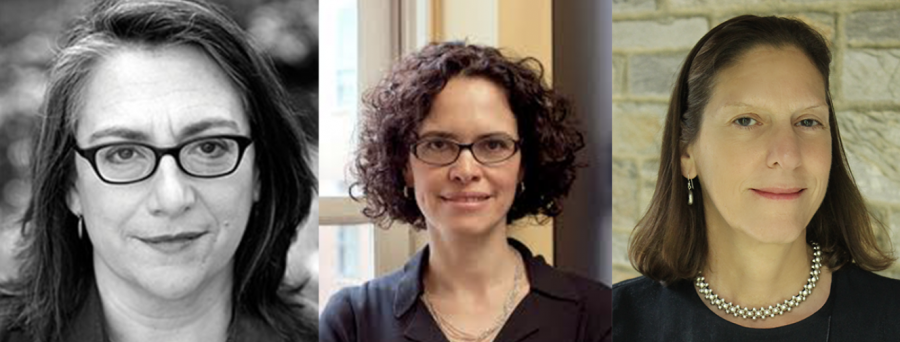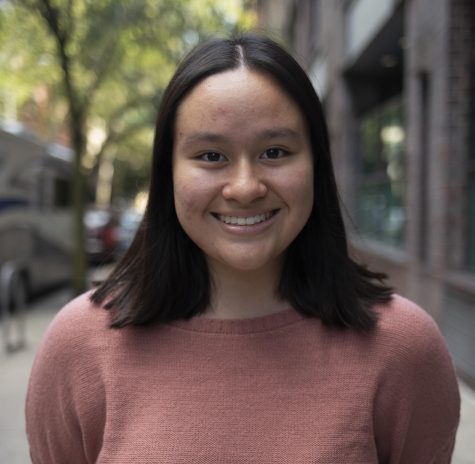Professors Awarded Guggenheim Fellowships for Work in Literature, Film
(from left to right) Carol Dysinger, Ada Ferrer, Martha Hodes, the 2018 NYU faculty recipients of the Guggenheim Fellowship.
April 13, 2018
Three NYU professors received 2018 Guggenheim Fellowships from the John Simon Guggenheim Memorial Foundation. They are among the 173 recipients chosen from over 3,000 applicants from the United States and Canada for the prestigious award. The fellowship is awarded to experts in their fields who have demonstrated creative and productive abilities.
History professor Martha Hodes will set out to write a book, but it will not concern the 19th-century United States, her usual area of research. Instead, it will be inspired by a frightening episode from her childhood.
“I’ll be writing a book exploring history and memory through a 1970 hijacking in which I was a 12-year-old passenger held hostage on an airplane in the Jordan desert for a week,” Hodes wrote in an email to WSN. “I was traveling from Tel Aviv to New York with my 13-year-old sister — just the two of us, without either parent. The hijackers were from the Popular Front for the Liberation of Palestine. It was both a scary and an amazing experience.”
Ada Ferrer, the Julius Silver Professor of History and Latin American and Caribbean Studies, will also spend her time as a Guggenheim fellow working on a book. She aims to finish a work recounting a popular history of Cuba that she began in early 2016.
“Histories of nations tend to be written top-down from the capital outward,” Ferrer said. “I want to write a history in which people of color figure more prominently, women figure more prominently, people not in Havana figure more prominently, and in which the actors aren’t just political leaders or disembodied social classes, where they’re complex human beings responding to greater forces and making decisions. It’s a big history, but I want to tell it at a level that’s very human-scale.”
As a Cuban immigrant herself, Ferrer said that her book will be very timely, especially given the current state of foreign diplomacy with Cuba.
“The present of U.S.-Cuban relations is so up for grabs right now that it seemed like a really important moment to write something for the broader public that’s about the long history of the island and its relationship to the U.S.,” she said.
Carol Dysinger, a filmmaker and associate professor in the graduate film program in the Tisch School of the Arts, hopes to finish a project she calls “a live documentary installation” by the end of her fellowship. She will add to her 15 years of experience documenting the effects of war in Afghanistan.
“I’ve spent most of my career between fiction and documentary,” Dysinger said. “So I am examining storytelling practices and inquiring into the mechanics of story and the role storytelling plays in what we come to believe as true, the war story being the most egregious example of how story is used to very particular ends. I’m trying to create a counter-narrative to traditional stories of conflict. I just want people to know war better. It’s not just what happens on the battlefield.”
All three of the recipients from NYU are excited to undertake their respective projects with the support of their fellowships. Dysinger said the award is a great affirmation.
“It’s an acknowledgement and an encouragement to take what you’re doing to the next level,” Dysinger said. “It’s really an honor.”
Email Sarah Jackson at [email protected]



























































































































































